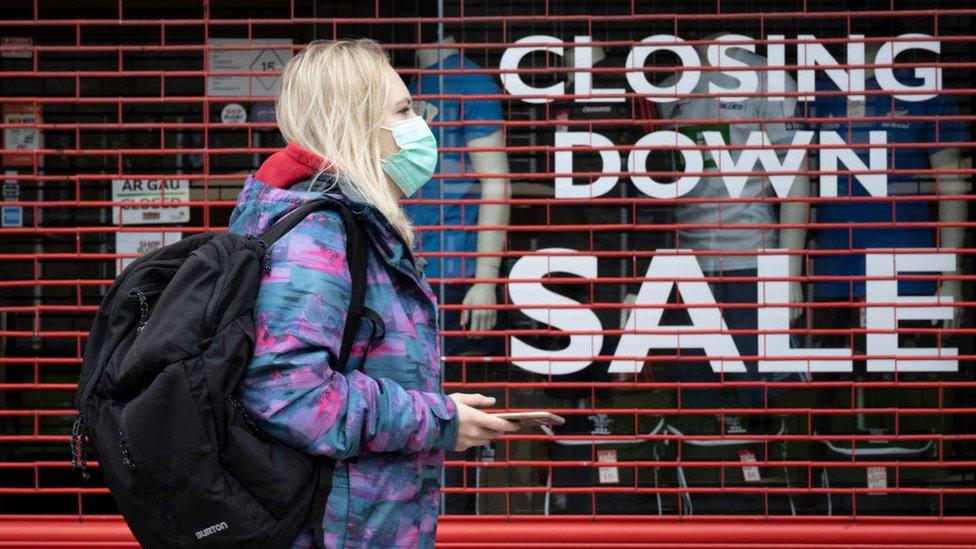Covid in Scotland: Nearly one in six shops lying empty
- Published

The number of empty shops in Scotland has hit a six-year high amid the pandemic, according to industry data.
The Scottish Retail Consortium said the vacancy rate rose to 15.3% in the first quarter of the year, well above the UK-wide average of 14.1%.
That means nearly one in six Scottish shop units is lying empty.
Vacancies were highest in shopping centres at 20.1%, compared with just under 14% for the high street and nearly 13% for retail parks.
Experts suggested shopping centres had been particularly exposed to the effects of the pandemic.
The Local Data Company (LDC), which compiled the figures, said centres had a lower proportion of "essential" retailing, and were more exposed to categories which were in decline, such as fashion, department stores and casual dining.
'Recovery plan needed'
The Scottish Retail Consortium said a longer-term recovery plan for the whole sector was needed.
Director David Lonsdale said: "The maelstrom wrought by the pandemic and the forced closure of stores over the past year is laid bare in these figures.
"It's a vivid reminder of the economic toll of the pandemic and of repeated lockdowns and restrictions.
"This has been the most bruising period for many of Scotland's retailers, and even with shops now permitted to reopen the fact is large swathes of the sector face an uncertain future.
"The next devolved government needs to respond to this reality with a recovery plan that pauses any new non-Covid related red tape to allow the industry to recover, by reducing the costs of doing business and supporting consumer spending by keeping down the cost of living."

LDC director Lucy Stainton said that although the true impact of lockdowns had yet to be seen, indications from the first few days of "unlocking" had shown there was still significant demand for physical retail and eating out.
She added: "Hopefully, as consumer confidence continues to build momentum with reduced Covid-19 cases, more of the population vaccinated and warmer weather, further fall-out from the pandemic might be mitigated somewhat."

